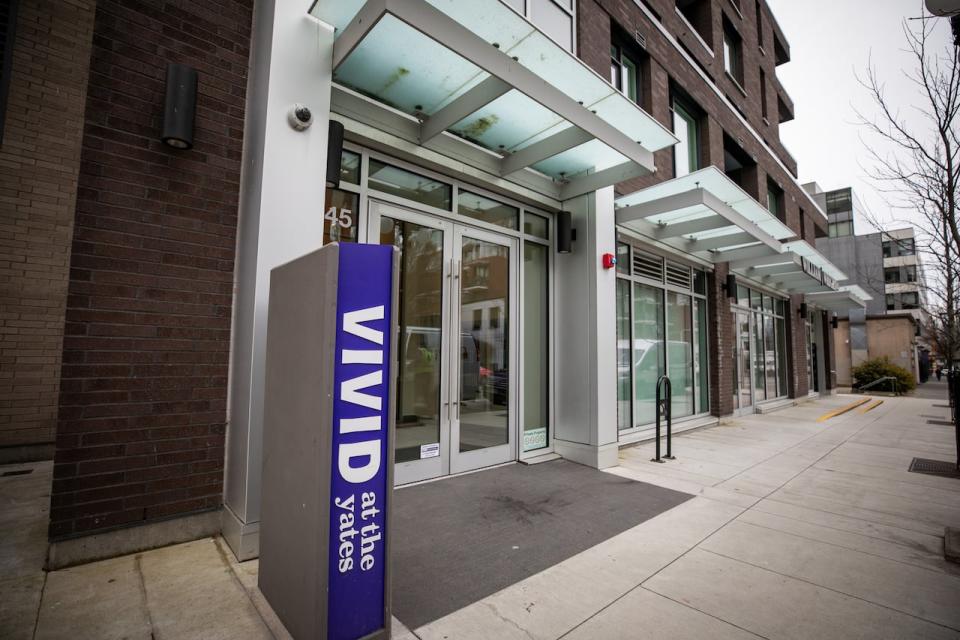14 more lawsuits filed in relation to affordable housing program

A beauty consultant, a chef and a musician who claimed to be stuck in China.
B.C. Housing filed 14 new lawsuits this week against a wide range of people accused of abusing a program designed to get affordable homes into the hands of people who need them.
After days of questioning following CBC stories about alleged violations of an Affordable Home Ownership Program, B.C's Housing Minister released figures suggesting as many as a third of the 135 units in Victoria's Vivid condominium project went to buyers who never lived in the building.
In a statement released late Thursday, Ravi Kahlon said B.C. Housing has taken back title on 19 units and is currently suing to get back 22 more — with more lawsuits to come.
"We are taking further action to ensure that these homes are available to the people that need them," Kahlon said in an email sent to CBC.
"We won't stop taking on wealthy speculators and investors — making sure the housing market in B.C. works best for people, not speculators."
Potential fraud identified
Kahlon once again pinned the blame for problems at Vivid on the Liberal government — who were in power at the time the project started as a pilot to help middle-income families into B.C.'s overheated housing market.
The building was built with the help of a $53-million low-interest construction loan from the province, intended to allow the developer to pass the savings on to qualified buyers.

Victoria's Vivid condominium building was a pilot project for a program intended to help middle-income families enter B.C.'s housing market. But lawsuits filed by BC Housing claim at least a dozen people who already owned multiple properties bought units. (Mike McArthur/CBC)
But the NDP claim no provisions were in place to prevent buyers from owning property elsewhere until they took over government and introduced a covenant requiring purchasers to live in their units for at least two years.
According to the lawsuits, all that was made clear in "affordable housing program education" sessions where buyers were told the project was financed by B.C. Housing and they "were being provided with a discount."
But none of that history was made clear in 2021 when construction of Vivid completed and then-housing minister — and now premier — David Eby called the project "one example of the important work that can be done in partnership with the private sector."
In a statement, B.C. Housing said the agency was first made aware of potential fraud that same year when they learned some units were being rented in violation of the covenants.
'Residing in China due to COVID'
One of the lawsuits cites the situation of a young student from China "with limited English skills" who called Vivid's strata council to say she was being evicted.
"She had been instructed that rentals were not permitted and that she could not tell anyone that she was renting," the civil claim reads.

B.C. Housing said the agency was first made aware of potential fraud that same year when they learned some units at the Vivid condominium building were being rented. (Mike McArthur/CBC)
The student said she was aware she was not the first tenant of the unit.
"Her tenancy commenced in October 2021 and ended in March 2022, when the tenant was evicted with 10 days notice," the lawsuit says.
According to the claim, that's the same month a process server for B.C. Housing attended one of six detached homes also owned by the couple who own the unit where the student had been living.
Another of the latest claims was filed against a musician who paid $481,200 for his unit at Vivid — a price that included a parking stall.
The lawsuit says B.C. Housing asked the musician for documentation in March 2022, but didn't hear back until the following month when a lawyer advised them the man "was residing in China due to COVID and could not execute a statutory declaration."
B.C. Housing says nine of the reclaimed units have been sold to "qualifying middle-income households."
An additional 10 are for sale.


